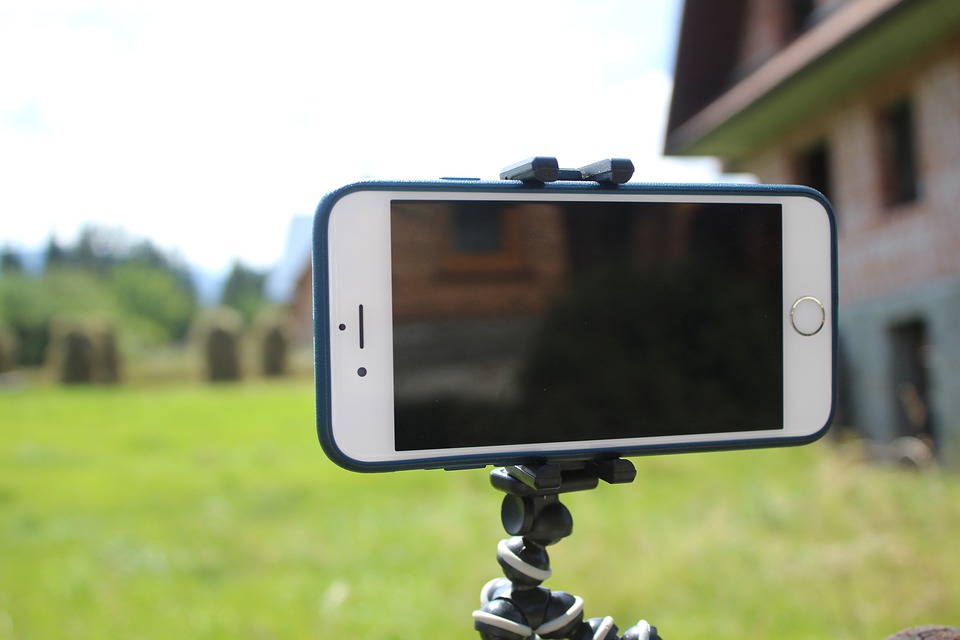Introduction to Live Streaming
These resources have been compiled by The Episcopal Diocese of San Diego Communications Director, Chris Tumilty.
| Why this is important:
The coronavirus is keeping people at home. Anxiety about the unknown, novel virus is preventing some people from gathering in groups. Here are some tips and tricks for LIVE streaming your church service—cheaply and effectively.
What you’ll need:
- Facebook Organizational Page
- Cell phone (with an activated cellular plan—make sure your data plan supports the increased data use for live streaming.)
- Tripod with cellphone holder (required).
- Microphone (suggested but optional).

The Platform: Where do we stream to?
Why use Facebook?
Currently, Facebook is the most reliable tool for our congregations to live stream. “But Aunt Ellen doesn’t use Facebook. How is she going to see the service?” Facebook Organization Pages work the same as websites—completely public. A Facebook account is not required to view content on a Facebook Organization Page.
Checking/Setting up your Congregation’s Facebook Organization Page
Things to check:
- Does your church have a Facebook Organization Page?
- Are you an editor or administrator on that page?
- How can you quickly check? Can you post as the organization page? If so, then you are an editor or an administrator on the page.
Setting up a Facebook Organization Page:
https://blog.hootsuite.com/steps-to-create-a-facebook-business-page/
Let’s Start Live Streaming
Title and Description
Draft a catchy title and description. Begin the post from the Organization’s page by pressing “Create Post” and selecting “Go Live” from the post options. Now, input your title and description for the post. After this step, you are ready to go live.
Where do I put the tripod and camera?
When streaming an entire service, the best place for a camera and tripod is in the front pew, the first seat off the aisle, at head height. This will give the perspective of sitting in church. A volunteer is required to start and stop the live steam. Start and stop the live stream after the camera is in place. Do not start the stream and then attempt to place the camera in the tripod.
Audio: Can you hear me?
Audio in churches can be tricky. To record quality audio, it depends on what type of building you are in—is your church space a traditional, stone building with large arches and domed ceilings, or is your church space a more modern building with carpet and clean, painted walls?
Traditional Building: A microphone is strongly suggested but not required. Running a microphone and cable to a nearby, in-house speaker will significantly increase the quality of spoken voice. If you need to change the location of the camera for audio, do it! Sound is more important than a close video. Audio extension cables are available for purchase to extend the range of your microphone’s built-in cable.
Modern Building: A microphone is suggested but not required. If your camera is placed in the front pew or seat and there are in-house speakers, the phone’s mic should be sufficient. Nevertheless, strive to have a plug-n-play microphone near an in-house speaker for the best quality.
Best Practices
- Let people know your service will be Live Streamed before the event—provide the Facebook URL to your organization page. (For example, the Episcopal Diocese of San Diego’s Organization Page can be found at https://www.facebook.com/diosandiego/)
- Viewers do not need to be a member of Facebook to view organizational pages.
- Encourage engagement. Ask questions specifically to those joining on the stream. Have a volunteer, with posting privileges curate the stream—responding to comments, posing questions in chat, and thanking people for their attendance.
- Ask the people in attendance to share the post. Sharing dramatically increases reach.
- Have fun and try new things!
